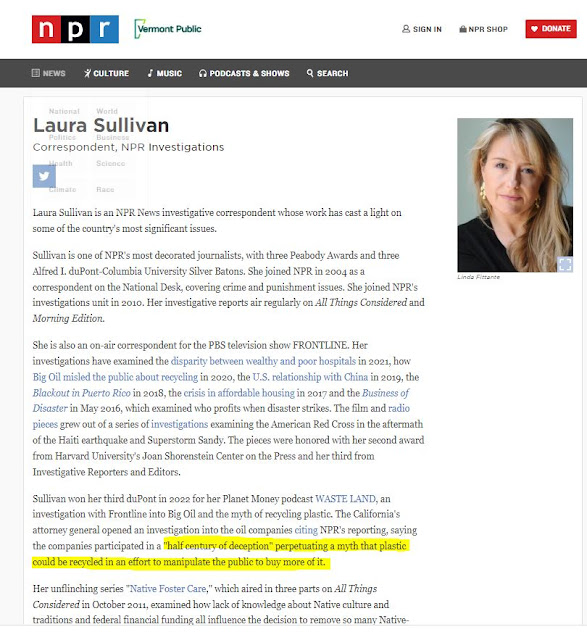Part 1, History 1999: When I left my position as Division Director at the Massachusetts Department of Environmental Protection, I got a one-year special assignment to orchestrate the first CRT waste ban and recycling program in the USA. I got to promote/appoint my most talented staff... That is the thing I'm proudest of from that time. It wasn't "recycler of the year" or the state legislature commendation, or the state employee of the year recognition, or increasing my program budget from $1M to $10M, or my own promotions. I'm proudest of the demotion year, because that elevated people like Brooke Nash, John Fischer, and Greg Cooper (two of whom began as interns) to my empty chair. Anecdotally, I got a pay raise (how demotions work at Mass State Employees Union) and three-day a week (to commute from Vermont), to focus on ONE big special project - cathode ray tube recycling infrastructure - which essentially became the Massachusetts "infrastructure business plan" for a TV and computer monitor waste ban.
 |
"Don't throw the baby out with the bathwater" is an idiomatic expression for an avoidable error in which something good or of value is eliminated when trying to get rid of something unwanted.[1][2][3] A slightly different explanation suggests this flexible catchphrase has to do with discarding the essential while retaining the superfluous because of excessive zeal.[4][A] |
Vermont Agency of Natural Resources and its DEC initially gave me a nod and showed respect when I left Massachusetts DEP and invested my sweat equity to start a consulting business on electronics recycling. I got to meet with Bob Tonetti and Marilyn Goode at EPA in Washington, and they codified the Massachusetts DEP CRT recycling rules into Federal. I got to meet Michael Dell in Texas, I got invited to present to the California Resource Recovery Association CRRA Conference.
My message was reuse. Repair is the hospital, and Reuse is the orphanage, for used electronics. Recycling is the Morgue. Little did I know that to Vermont ANR, reusing a computer part to fix another computer would one day be presumed to be a murder of the first computer. The burden of proof is on the doctor saving the patient.
Vermont Agency of Natural Resources, to date, has appointed a RoboCop who doesn't care about orphanages or hospitals to throttle my company. It has been all about the morgue, and only the morgue. And they sent an inspector to investigate my company's reuse of solar panels last month... The problem was that they are not a problem yet... I've been predicting that solar panels are the "next CRT", and ANR acted too swiftly. And so I listed our 50,000 s.f. facility for sale, and moved half of my operations to Massachusetts in 2019. I remain with a foothold in dear old Vermont, but I see storm clouds in places far north of Puerto Rico...
But back to history - Why are we still talking about CRTs? Because all the orphan CRTs created the critical mass of users for Asia and Africa internet cables. All of the orphan flip phones created the critical mass of users for 170,000 mobile phone towers operating today in Africa. And secondhand solar panels are about to be the babies boiled to be boiled in the bathwater. For that reason, Vermont will not be my place to invest in solar panel recycling. Two reasons - "No" and "Hell NO!" I'm not killing orphans, and will go to prison rather than build a business overseen by baby killers. Vermont can't get it right, because it has no spine to correct regulators, because stopping regulators from killing reuse orphans is "anti-regulator" and that is "bad". Orphanages and Emergency rooms saving patients are "anti-cemetery" and are presumed to be dumping the bodies on roadsides. Here in Vermont, we can't have that.
Toe tag. (2022, September 2). In Wikipedia. https://en.wikipedia.org/wiki/Toe_tag


